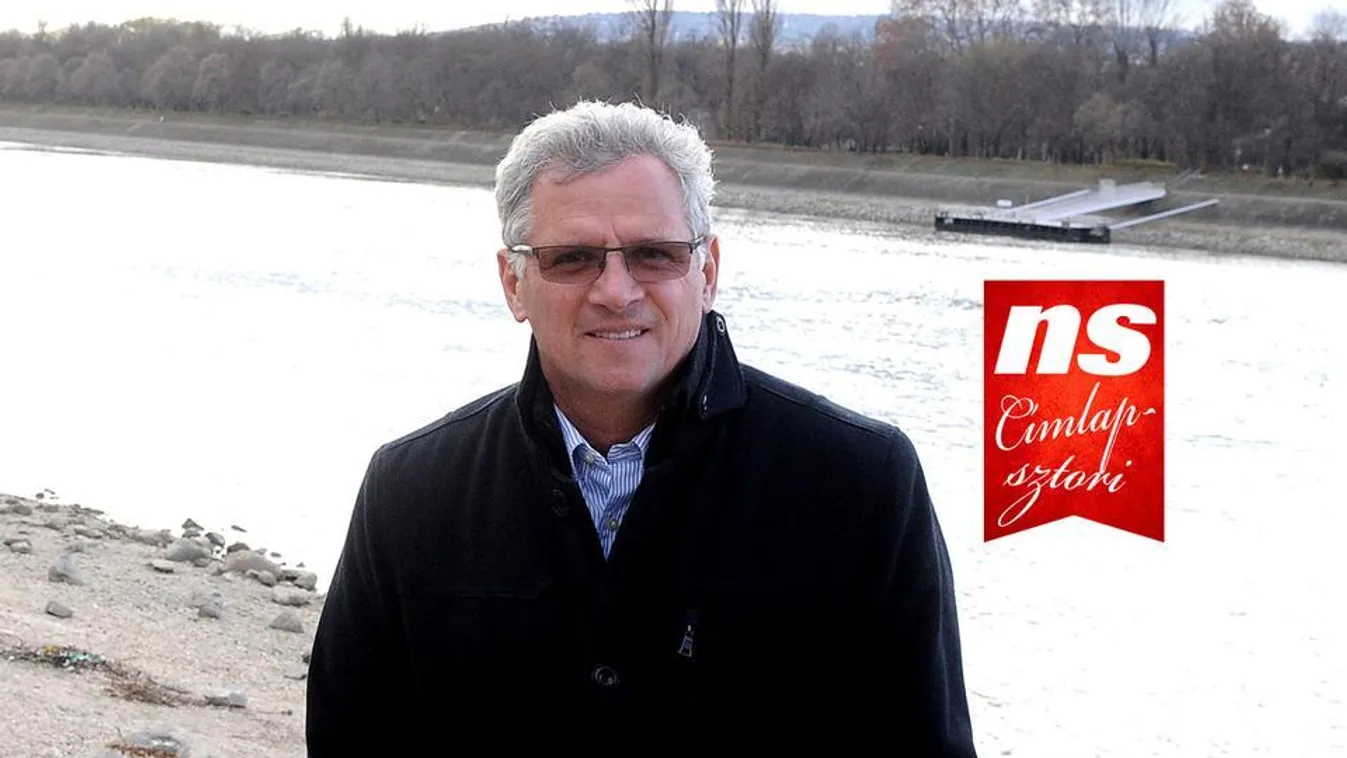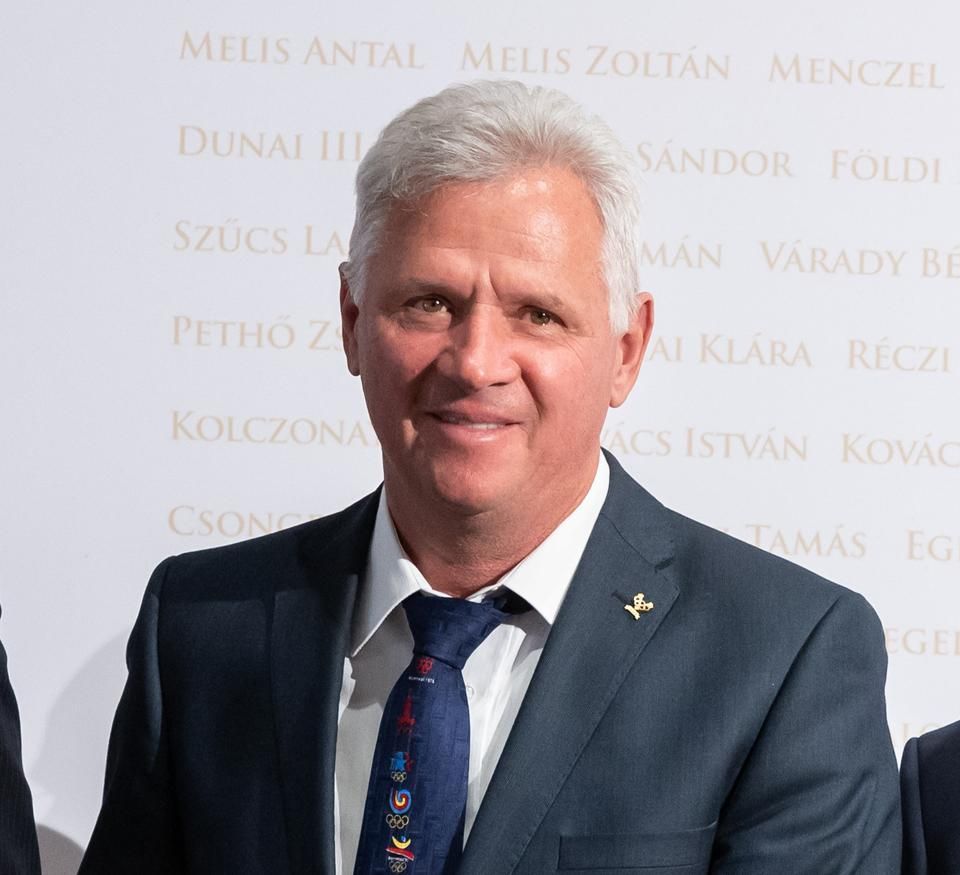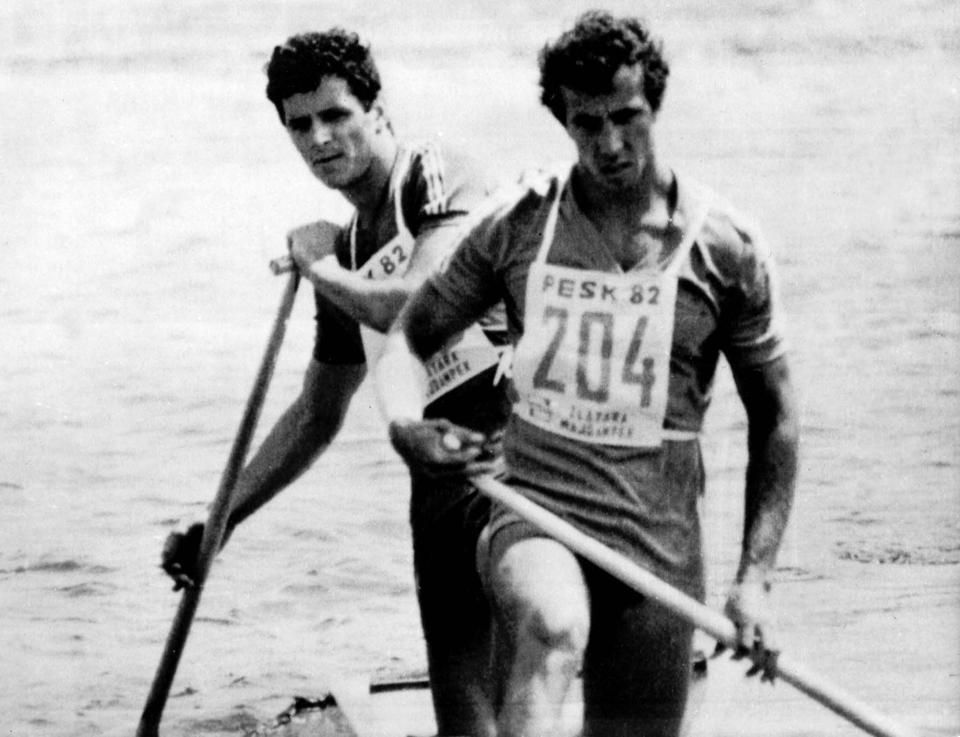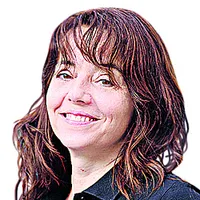Being an Athlete of the Nation comes with responsibilities

– Congratulations! Put your hand on your heart: did you expect this recognition?
– I'll be honest: I did – said István Vaskuti, Olympic and world champion canoeist, who was nominated as the 12th member of the Athletes of the Nation panel on Wednesday morning. – It had just been published in Nemzeti Sport earlier that I was being considered a favorite. The field of nominees was extremely strong, and anyone who would have been chosen would be unquestionable, too. Thank God, Hungarian sports is so rich! One of the criteria for nomination is that a successful athlete should continue to do something for sports after their competitive career, and I feel that I have done well in this respect. I have worked in canoeing for years, decades, which, apart from being a serious job, has brought me outstanding results and given me a lot of experience. I can say without immodesty that I have done a lot for my sport.
| Born: | 1955. december 4., Debrecen |
| Sport: | canoe |
| Double partners: | László Solymár, László Foltán, Tamás Buday, János Sarusi Kis |
| Achievements: | Olympic champion (C–2 500 m, 1980), 10-time World Champion (C–2 500 m, 1977; C–2 500 m, 1978; C–2 1000 m, 1978, C–2 10 000 m, 1978; C–2 500 m, 1981; C–2 10 000 m, 1981; C–2 10 000 m, 1983; C–2 500 m, 1985; C–2 500 m, 1986; C–2 1000 m, 1986), 3-time World Championship third place (C–2 10 000 m, 1979; C–2 500 m, 1982; C–2 10 000 m, 1982) |
| As sports manager: | European Canoe Association-office bearer, International Canoe Federation-office bearer, Hungarian Olympic Committee-office bearer |
– So, were you waiting for State Secretary for Sport, Ádám Schmidt's phone call?
– It was an unknown number, but I picked it up and on the other end it said, "This is Ádám Schmidt.” Then I thought he didn't call me to tell me I hadn't won... He congratulated me with nice words and then handed the phone to Pál Schmitt, who did the same.
– What did you do after you hung up the phone?
– I thanked God that I had achieved this and could experience it. It wasn't just anybody who gave me the recognition: I've been awarded many honors in my life, I've stood on the podium as a winner many times, but now, I was nominated by athletes I've always looked up to, people I've always admired. I had a similar experience once before when I was chosen as one of the immortal athletes in the Hungarian Hall of Fame – among people like László Papp, the then-living members of the Golden Team, András Balczó, Dezső Gyarmati, Imre Földi and let me not list the other great professionals.
– Does it make you want to pinch yourself?
– Something like that. And at the same time, I ask myself: have they really chosen me, do I really belong to them?
– By the way, how did you get into the world of sport, canoeing in particular?
– Usually, children get into a sport by chance. My father's cousin was a canoeist, and he took me down to Margaret Island. In my case, it was a stroke of luck that I got into the sport I was actually talented in.
– Did you find this out soon?
– Yes. Or not - I don't know... I was a skinny kid, and that didn't change afterwards. As a winner, I stood on the podium with my seventy-five kilos, whereas a good canoeist should be around eighty-five. But I was always technical and skillful, and although I was good in singles, I was a doubles specialist.
– So, you were a good team player.
– I had to be. I had to serve the other - I was the one kneeling at the back of the boat, so I was the one who did “everything.”
– For example, you stopped paddling earlier...
– For example - it happens in our sport. Luckily, at the Moscow Olympics, we had such a big lead that my mistake of finishing the race early because I thought we were already at the finish line is forgivable.
– Have you figured out why you fell so much in love with canoeing?
– An actor who has only watched the sport from a distance, and who was involved in an instructional film that is now being made, said he never imagined that canoeing could be so complex and complicated. He was right, that is the secret of the sport. If you can canoe well, it's an art and an aesthetic experience. It requires constant balancing.
– When did canoeing really become a serious part of your life?
– My career was always a success story as a youngster, as I won the age-group competitions back-to-back. However, when I didn't get into the University of Technology because I was lazy, and I came in second, third or fourth place in the senior national championships, Uncle Jenő Maurer sat me down and said, “Pistike, let's talk about how to go on, about your possible ‘sportsman's cover occupation.'” And I was indignant, saying how can anyone imagine that I will play sports for money?
| Pál SCHMITT, Athlete of the Nation: On the one hand, it is a sad obligation for us, since one of our members had passed away, but on the other hand, the rule is that the eleven of us should nominate a twelfth member by secret ballot. I was pleased to state on Wednesday morning that a consensus had been reached on one person. István Vaskuti's work as a sportsman and sports leader was recognized by this vote, and his life's work speaks for itself. And it is a particular joy that we will have a representative of a sport that we have never had before - this vote is also a salute to Hungarian canoeing. |
| Zoltán MAGYAR, Athlete of the Nation: István Vaskuti deserves the win, he has a great sports career behind him, he has done a lot for canoeing as a sports manager, worked effectively, so he meets all the criteria for the Athlete of the Nation voting. There were several other candidates, and we can't go wrong in such a situation, as luckily, Hungarian sports is rich. We are all delighted with the result, and I congratulate István Vaskuti from the bottom of my heart, it is good that he is one of us now. |
| István JÓNYER, Athlete of the Nation: we have known Pista Vaskuti for a long time, he has always been a likable sportsman, and he kept this quality even after he retired from active sport. As a canoeist, his idol was Tamás Wichmann, whose restaurant I regularly visited, and we met there many times, and we even worked together on the Hungarian Olympic Committee's Board of Athletes. We are still close to this day, and next week, for example, we are going together to Miskolc, my hometown, for a fan meeting. Our lives have already crossed several points, and I'm glad that this number has now increased by one, and that we are now playing together again. |
– What did you do instead?
– As a real naive young man, I went to work as a geodetic surveyor assistant.
– Excuse me?
– Yes, I was the one who held the sign at the land surveys. For example, in the Mátra, where we worked in the mornings, then I went hiking in the mountains in the afternoons. I had a good time, but I got tired of having to go to the company after a month and copy everything on paper. Moreover, when I got to Margaret Island at the end of a working day, the others had already finished their training. This struck a chord with me, so after two months, I approached Jenő Maurer and asked him what the deal was with the ‘sportsman's cover occupation.'
– And how did you get from there to the Olympic gold?
– Before the Montreal Olympics, I was drafted into the military - for only eight months as an athlete. We were sometimes released in the afternoons, and we were able to compete in the first qualifiers with László Solymár, which we won, but the other two competitions were in Brandenburg, and we had no chance to go there because we had no passports and were soldiers. Then I met László Foltán and I felt that something good could come out of it.
– The victory in Moscow was needed - for your sport as well!
– Yes, after the great success of 1968, Hungarian canoeing wasn't successful in Munich and Montreal. Many of us asked the question: after world championship titles, why do we fail at the Olympics? Before Moscow, János Parti was already the national team head coach, and he held a team meeting at a training camp in Dunavarsány. Suddenly, with a theatrical gesture, he pointed at us: the Olympic champion is sitting here among you. We looked around, wondering who he was thinking of, who he was pointing at. Of course, everyone inside felt that the coach's statement was directed at him. We were considered favorites in Moscow, but it's not easy to compete with the burden of being stopped at every corner and people saying, "You're going to win the Olympics, right?

– Do you occasionally recall the Olympic or even world championship victories – let's say, as a help for yourself?
– Since the beginning of my career, I have strived and made myself aware of who I am. You are not a better person because you have achieved success as an athlete or because you canoed fast in Moscow - although there was no question that I was a really good canoeist. In everyday life, you have to be a human being, not an athlete, and you have to realize that you don't have to wear a medal or a crown on your head. Sport was, and still is, important in my life, but I never put up medals in my home because I never wanted to be a monument to myself. I also didn't want to impose on my children that I was an Olympic champion - I just wanted to be their dad.
– Being an Athlete of the Nation is a huge honor, so do you wear this recognition also without a crown?
– I still won't wear a crown, but I'm very proud of this recognition, which is also an obligation. As an athlete I represented someone - István Vaskuti stood on the podium, but I always competed for Hungary. Everything I have achieved was also achieved for Hungarian fans. I can't deny that I'm a true patriot: I've traveled the world, I've been to nine Olympics, I've seen a lot of things, and I know that many people say a lot of things about our country, and I can say that nothing is made out of gold anywhere else either - this is a great place, it's up to us to enjoy being here. This recognition also comes with a responsibility and a mission to all Hungarians: we were and are here for them.

